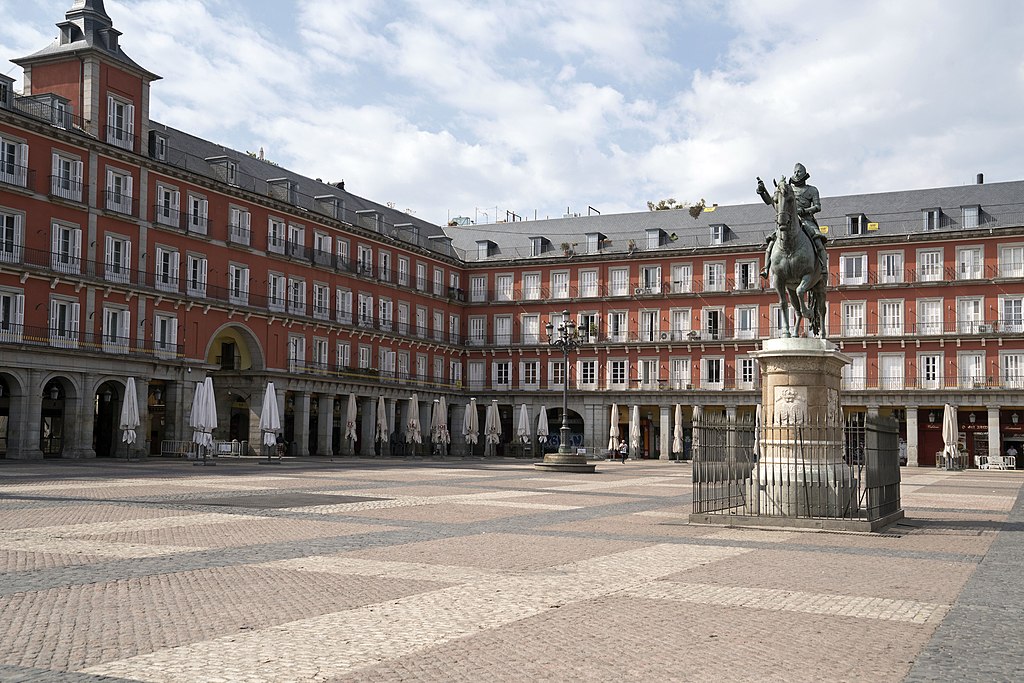
Every evening on the dot of 8pm my neighbours in Madrid take to their windows, balconies or front doors, if they have a house, to applaud those in the healthcare system working tirelessly and in far from optimum conditions of safety, due to the lack of protective equipment, to combat Spain’s spiralling coronavirus, which has produced more deaths than in China where the virus began.
We are now half way through the one-month lockdown, which began on 14 March, in the hope that the peak will soon be reached and there is a glimmer of light in what is going to be a very long tunnel. The number of confirmed daily cases began with 19 on 10 March and rose relentlessly to 655 on the 26th, bringing the total to 57,786, the second-highest in Europe after Italy and the fourth globally. More than 4,300 have died.
After an initially slow response to the crisis by the government and the general public, perhaps as a result of Dr Fernando Simón, the head of medical emergencies in Madrid, stating on 9 February that ‘Spain will only have a handful of cases’, Spaniards have been quick to follow the government’s belated recommendations to self-isolate and maintain social distancing since the lockdown.
Before then, 2,500 Valencia football fans travelled to Italy and mixed with 40,000 Atalanta supporters for a Champions League game in Bergamo, which aggravated the virus in Lombardy, and tens of thousands of people took to the streets on 8 March, International Women’s Day, irresponsibly backed and led by all the political parties except the far-right VOX. Ahead of the announcement on the lockdown, some travelled to villages and beaches, particularly from Madrid, angering residents in these places for ‘bringing’ the virus.
In a country blessed most of the year with fine weather, where the great majority live in flats in cities, often owning a second home in a village or on the coast, where the family is a cornerstone of society, and with by some accounts more bars, cafeterias and restaurants than the rest of the EU together, Spaniards are not finding it easy to stay at home.
Spain is a particularly gregarious and tactile nation: self-isolation and social distancing are not part of Spaniards’ DNA. When women greet each other and say goodbye, it is normal to kiss on both cheeks and for men to shake hands (unless they are relatives), much more than the ‘colder’ Northern Europeans.
With some exceptions, Spaniards are adhering to the lockdown and have knuckled down. A 77-year-old man was fined in Madrid for hunting Pokemon in the streets during the lockdown (one of more than 1,000 fines). The police shared the report against the man on Twitter, writing: ‘Hunting #Pokemon, dinosaurs or any other magical creature is PROHIBITED during the State of Alarm. Don’t make excuses and #StayatHome #SocialResponsibility #COVID19’.
The disciplined and ordered response has led to comments on social media that Spaniards are becoming ‘German’ in their daily habits. This, in turn, has raised the question of why so few Germans have died so far from the virus –47,278 cases and 281 deaths compared with Spain’s 57,786 and 4,365, respectively–. One reason is that Germany has been aggressively testing its population from the outset. Also, it can be no coincidence that the country with the lowest death rate also has the highest nurse rate: 13.2 nurses per 1,000 inhabitants, far above the other heavily COVID-19 affected countries.
Spain’s healthcare system took a hit from the country’s Great Recession as of 2008: spending fell by €3.8 billion between 2009 and 2018 (6%).
The coronavirus is taking an even heavier toll on the elderly, in stark contrast to the Great Recession, Spain’s last crisis, than in other countries. Two-thirds of the Spanish dead were aged 80 or older, according to a data sample provided from the Health Ministry, compared with 50% in Italy as of last week, and 15% in China in February. Spain has one of the world’s longest average life expectancies (83 years).
Those who bore the brunt of the Great Recession were young adult workers, particularly in the construction sector. In many cases, Spain’s extended family came to their rescue, often grandparents with their pensions. Now it is the abuelos who are the most affected, and with the lockdown they are isolated from their families unless they are living with them, something that is not medically recommended at the moment.
The Great Recession caused the unemployment rate to reach 26% in 2013. Before the coronavirus, it had declined to 14%, still double the EU average. The rate is now shooting up again as tens of thousands of workers are laid off.
The last crisis showed Spain to be a very resilient society. It held together. It will do so again, but it will be sorely tested.


